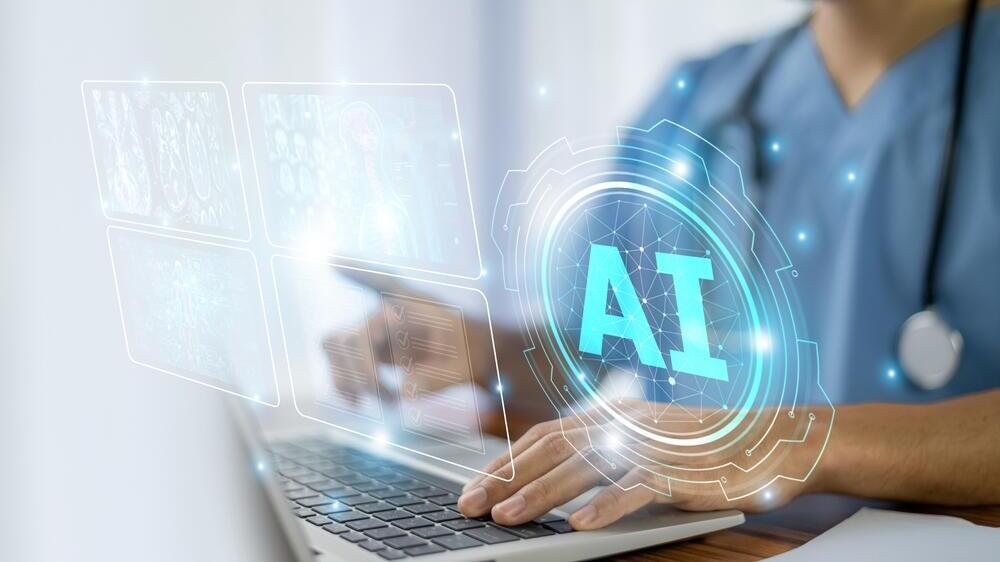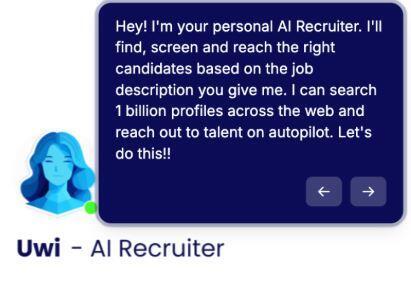There’s something in us—perhaps it’s our Israeli nature—that refuses to see what’s right in front of us. Not because we’re blind, but because we don’t want to feel the first crack in the wall. It’s easier to cling to the desk, hold tight and believe the noise is outside the building.
Psychologists call it the anchoring effect. I call it the “it’ll be fine” effect—the age-old mechanism of “let’s see what happens.” It shields us from anxiety and lets us sleep at night. But it’s also blindness. Take Guy, a recruitment manager at a Herzliya high-tech firm.
Now, large language models like GPT-4o, combined with automation systems, reduce screening from days to minutes, freeing recruitment teams for high-value tasks like in-depth interviews, cultural fit assessments and managing top candidates. This is how Uwi, an AI-powered recruiter from HeroHunt.ai, automatically searches, screens and contacts candidates.
In the legal world, a major firm cut the time to review a complex real estate contract from 12 hours to nine minutes. Interns once spent sleepless nights hunting for problematic clauses; now, a single click does it in a fraction of the time, leaving lawyers more room for strategy, negotiation and true counsel. This isn’t theory—it’s reality, happening now.
AI won’t crash down like a ballistic missile. It won’t topple the building; it’s quietly constructing a better, more efficient, cheaper one next door. One day, we’ll look around and find ourselves sitting alone. The first jobs to vanish in the coming years share a trait: repetitive, rule-based tasks.
Administrative staff filling forms, accountants updating spreadsheets, basic insurance agents issuing standard policies, junior analysts preparing monthly reports, legal assistants researching precedents, technical translators, recruiters scanning resumes and frontline support answering routine questions—all are at risk.
For example, a municipal collections coordinator manually updating property tax spreadsheets will likely see their core role gone within a year.
Yet, as some jobs disappear, new ones emerge: AI ethics consultants, data verification specialists, creators blending AI with video and art, professional prompt engineers and human-machine interaction trainers. The world isn’t ending—it’s changing.
Like everyone, I don’t know where this leads, but history offers a reminder: candle makers mocked the lightbulb and horse traders laughed at the first car. A 2023 study by Harvard Business School and Boston Consulting Group examined GPT-4’s impact on strategic consultants.
Initially, many feared it would undermine their expertise, but the most successful learned its limits. They didn’t trust it blindly, verified critical data and used it as a creative assistant for drafts and ideas while applying professional judgment. The result? They improved their work quality by 40%. The lesson: critical, thoughtful use turns fear into opportunity.
Optimists say AI’s true achievement will be reminding us who we are through what it can’t do. It will force us to invest in what makes us human—caring for each other, being good partners, reading deeply, acting boldly, growing spiritually, finding soulmates and enjoying life. Time will tell.
 Keren Shahar
Keren ShaharSome will misuse AI, but most people are decent and will use it to learn more, innovate faster and achieve medical breakthroughs. Want a first step? Open a Claude or Gemini account, upload your lease and within a minute, get a list of problematic clauses—or your employment contract or medical policy. See what you’re missing.
Ask yourself: What tedious, repetitive task do you do daily that a machine could handle tomorrow? You can keep denying it, clinging to the desk, believing the noise is outside. Or you can open your eyes. This isn’t about preference—it’s about survival.
Keren Shahar is lecturer and guide in generative artificial intelligence use.



